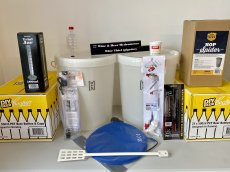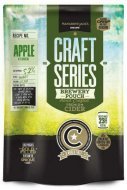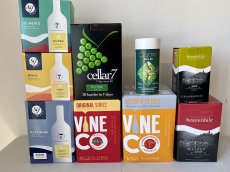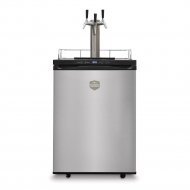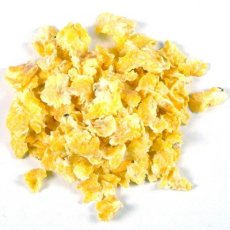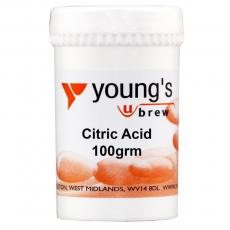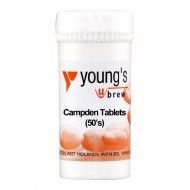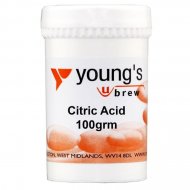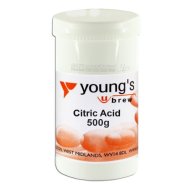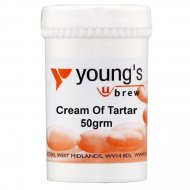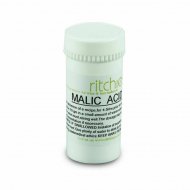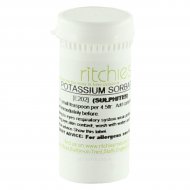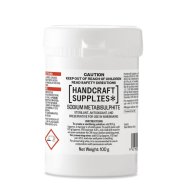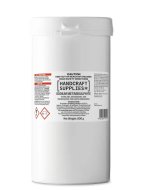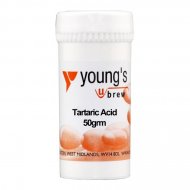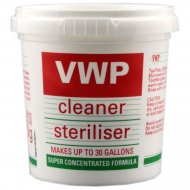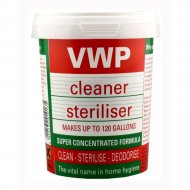Sign up to the Brew Mart newsletter for the latest news, offers & more
Please note that Brew Mart will be closed on Saturday, 5th July, AND Saturday, 12th July. Thank you.
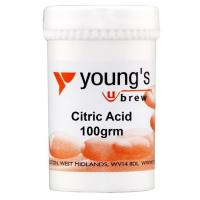
Brewing Acids
Acid and Alkalis products include acids, acid reducers and acid testing for the art of homebrewing beer, wine, cider, mead, & spirits.
Alkali acid are mainly used for balancing acidity in drinks. It is most commonly used in wines. Some have other qualities as well.
Examples of acid & alkalis, citric acid is used as a preservative and tartaric acid extenuates aromas and floral characteristics
WHAT ARE ACIDS AND ALKALIS?
ACIDS USED IN HOMEBREWING
WINE TANNIN
Are wine tannins acidic?
Tannin solutions have an astringent taste and are acidic.
The tannins in wine come from the wine's skins, stems, and seeds.
Red wines usually have some tannins. However, acidity is found in all wines.
Acidity is a necessary structural component in wine that balances bitterness or sweetness, alcohol, and tannins.
LACTIC ACID
How do you use Lactic Acid in homebrew?
Use one teaspoon per cup of water. You can use up to 4 teaspoons in a five-gallon batch. Lactic Acid comes in various concentrations, with 88% being the most popular in home brewing.
CITRIC ACID
Can you use Citric Acid in brewing?
Citric Acid contributes to the overall acidity of a beer. However, it has little impact on the overall flavour. Occasionally some brewers add citric Acid to increase the acid content of some low-alcohol and nonalcoholic beers where incomplete fermentation fails to increase sharpness to an appropriate level.
However, all fermentation stops after the pH drops below about 4.2.
The optimum pH is about 4.8 -
Some fruits used in winemaking do not contain sufficient acid levels on their own, and the recipe will call for additional Acid.
Citric Acid has a pleasant fruity flavour, typical in citrus fruits such as limes and lemons. Add Citric Acid to fruits or flowers that are low in acidity in homebrew wines, meads, or cordials as per your recipe.
A solution of Citric Acid is also helpful for cleaning protein deposits from your brewing equipment, such as inside your brew kettle where hops can discolour the inside. Make up a solution of Citric Acid to soak the equipment for a couple of hours and rinse well.
MALIC ACID
What does malic Acid do in brewing?
In making wine, beer, and cider, Malic Acid is used to regulate the pH and total acidity.
Malic Acid is a convenient ingredient for reducing the pH levels when brewing. Experienced brewers know that beer, cider, and wine need to be within a certain pH level. Otherwise, the tasting experience will not be good.
TARTARIC ACID
Should I add tartaric Acid when making wine?
Tartaric Acid plays a vital role in the stability of wines. It influences the colour, taste, and odour of the finished product. High tartaric content in bottled wine is indicative of the wine being unstable. Winemakers need to monitor the levels of tartaric Acid present in wine.
How do you dissolve tartaric Acid?
The tartaric acid solution dissolves 10 g in water and dilutes to 100 ml.
CREAM OF TARTAR POWDER
Is cream of tartar the same as tartar powder?
No, they are different things. When finely ground to a powder, Tartaric Acid is named Cream of Tartar.
The chemical name is potassium bitartrate, and the formula is KC4H5O6.
What does Cream of Tartar do to homebrew?
Cream of Tartar (E366), or Potassium Tartrate in full, can be used to prevent sugar-based solutions from crystalising. Cream of Tartar is also used for balancing the pH level of the brew. If you need to alter the acidity level, this is a good product.
Can Cream of Tartar be used for fermentation?
No! Cream of Tartar is a powder. Cream of Tartar is an acidic byproduct laid down during the fermentation of wine. After fermentation, the wine barrels are scraped, and the sediment is purified and ground to form the Cream of Tartar. You're not using Cream of Tartar for flavour, but rather its chemical properties.
Does Cream of Tartar dissolve better in hot or cold water?
Cream of Tartar is readily dissolvable using hot water.
Using cold water takes 60 parts of cold water to dissolve one part of Cream of Tartar. Cream of Tartar has a gritty feel and an acid taste.
ALKALIS USED IN HOMEBREWING
What does Calcium Sulphate Gypsum do for homebrew?
(E516) Calcium Sulphate is a salt used to increase the mineral content of brewing liquor. It improves brewing quality and produces the desired beer characteristics. The objective of the liquor treatment is to convert the mains water supply into an acceptable brewing medium. Treating your brewing liquor is vitally important.
Gypsum lowers the pH of the brewing water and increases the permanent hardness (Calcium ions) of the mash. Adding 1 gram per 10 litres (2 gallons) of water increases the salt level by 23 parts per million for Calcium and 56 parts per million for Sulphate. It increases the hardness of the water by 58 parts per million.
Precipitated Chalk (Calcium Carbonate)
Precipitated Chalk (Calcium carbonate powder) reduces acidity in wines. When making cider or beers, especially the dark malty variety it is also very beneficial. Country wine that uses high acid fruit such as rhubarb or apple will benefit from pure calcium carbonate due to the high acidity of these fruits.
What is Calcium Carbonate used for in brewing?
Calcium Carbonate or food-grade chalk increases pH, alkalinity and water hardness. Calcium Carbonate functions as a buffering agent against mash acidity, neutralising the higher acid content of dark roasted malts.
Can you use tap water for fermenting beer?
Tap Water. Many people drink tap water, and it's the most accessible source of water to get when you are brewing. Brew Marts general rule of thumb is that it should be okay to brew with if you already drink your tap water.
If tap water is your only option, use it. However, it would be recommendable to use filtered or spring water.
What pH should water be for brewing beer?
5.2–5.6
You want a mash pH of 5.2–5.6 when mixing the grains and water in ideal circumstances. Pure distilled water has a pH of 7.0; however municipal water sources have a higher (slightly alkaline) pH above 7.0 due to minerals, they pick up from ground and surface sources.

